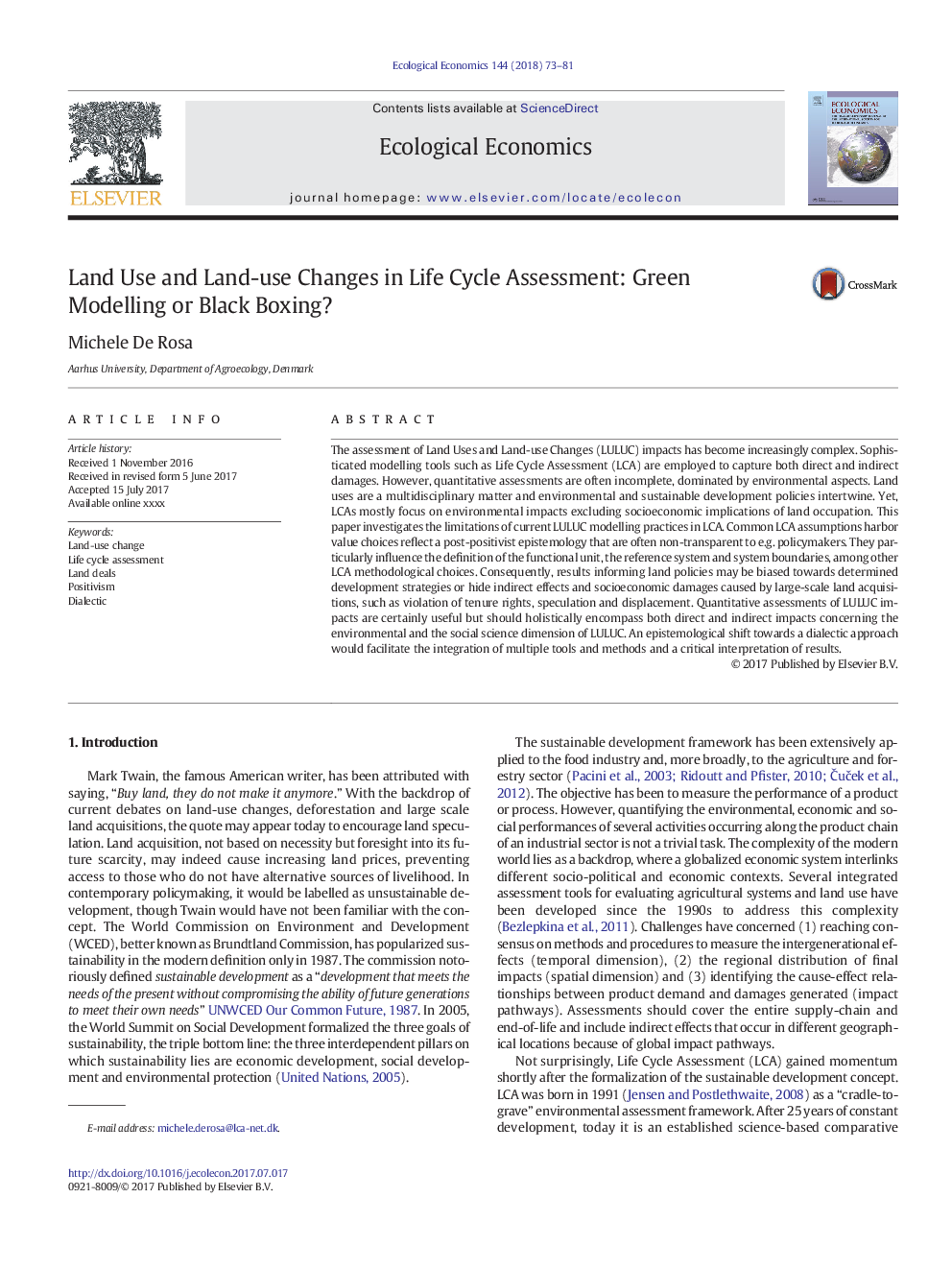ترجمه فارسی عنوان مقاله
تغییرات زمین و استفاده از زمین در ارزیابی چرخه حیات: مدل سازی سبز یا بوکس سیاه؟
عنوان انگلیسی
Land Use and Land-use Changes in Life Cycle Assessment: Green Modelling or Black Boxing?
| کد مقاله | سال انتشار | تعداد صفحات مقاله انگلیسی |
|---|---|---|
| 107416 | 2018 | 9 صفحه PDF |
منبع

Publisher : Elsevier - Science Direct (الزویر - ساینس دایرکت)
Journal : Ecological Economics, Volume 144, February 2018, Pages 73-81
ترجمه کلمات کلیدی
تغییر کاربری زمین، ارزیابی چرخه حیات، زمین معاملات، مثبت بودن، دیالکتیک،
کلمات کلیدی انگلیسی
Land-use change; Life cycle assessment; Land deals; Positivism; Dialectic;

